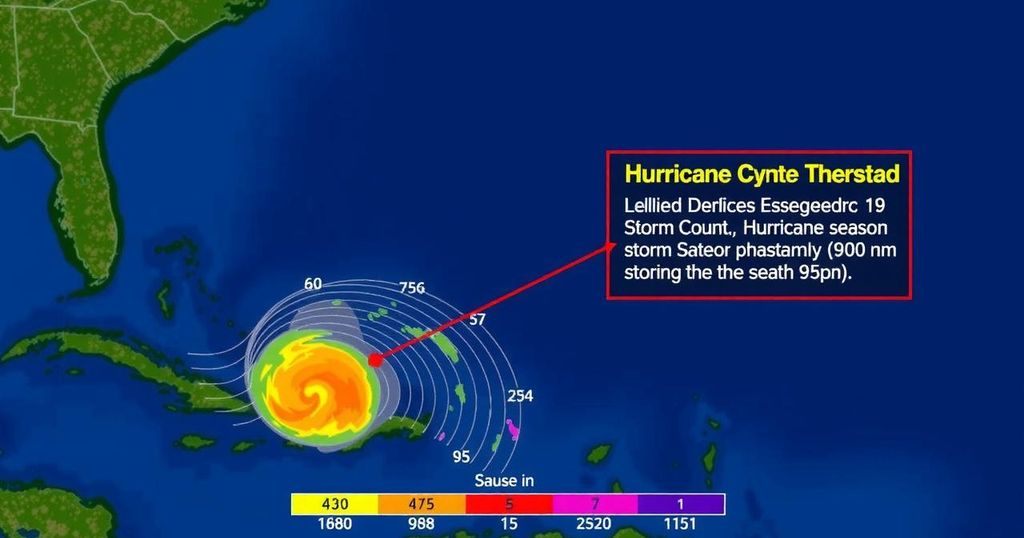2024 Atlantic Hurricane Season Overview: Activity and Impact Analysis
The 2024 Atlantic hurricane season recorded 18 named storms, including 11 hurricanes and 5 major hurricanes, with significant impacts from storms such as Beryl, Helene, and Milton. This season showcased advanced forecasting techniques and highlighted the increasing intensity of storms. NOAA’s accurate predictions and extensive data collection efforts played a crucial role in assessing storm impacts and enhancing public safety.
The 2024 Atlantic hurricane season, concluding on November 30, exhibited above-average storm activity, highlighted by 18 named storms, with 11 reaching hurricane strength and five classified as major hurricanes. Despite a mid-season lull, the season surged back dramatically, producing the highest number of storms post-peak in recorded history. The National Oceanic and Atmospheric Administration (NOAA) forecasts accurately predicted the activity, reflecting the increasing need for effective hurricane forecasting and research amidst rising storm intensity. Notable hurricanes include Beryl, Helene, and Milton, each causing significant damage and loss of life.
Hurricane Beryl set a record as the earliest Category-5 hurricane in the Atlantic, causing storm surge flooding in Texas and Louisiana after landfall as a Category-1 storm. Hurricane Helene, impacting Florida’s Gulf Coast as a Category-4 storm, resulted in catastrophic flooding and over 150 fatalities, marking the deadliest hurricane since Katrina in 2005. Hurricane Milton, also notable for rapid intensification and tornado outbreaks across Florida, exemplified the increasing intensity and unpredictability of storms.
The Eastern Pacific basin experienced below-normal activity, while NOAA implemented advanced forecasting systems that improved prediction accuracy significantly. Their Hurricane Hunters conducted extensive missions, collecting critical data to inform hurricane forecasts. NOAA’s ongoing engagement in hurricane research and the enhancement of tracking technologies underline the essential role of accurate weather prediction in safeguarding communities. The National Hurricane Center (NHC) continues to prepare detailed reports, furthering public understanding of hurricane impacts.
The Atlantic hurricane season runs from June 1 to November 30 each year and is a critical period for monitoring and forecasting tropical storm activity. This report highlights the 2024 hurricane season, which was characterized by an unusual number of storms, particularly following a lull during the season’s peak. With climate change influencing storm intensity and frequency, accurate forecasting is vital for preparedness and response efforts in affected regions. NOAA’s initiatives, including advanced forecasting technologies and hurricane hunting missions, are essential in enhancing storm tracking and safeguarding lives and property.
In summary, the 2024 Atlantic hurricane season proved to be significantly more active than average, with the impact of hurricanes Beryl, Helene, and Milton underscoring the evolving nature of storm strength and frequency. NOAA’s predictions were largely accurate, emphasizing the importance of their scientific efforts in understanding and forecasting these phenomena. With ongoing advancements in technology and data collection, the National Hurricane Center remains committed to improving forecasting capabilities and protecting communities from the ravages of hurricanes.
Original Source: www.noaa.gov




Post Comment